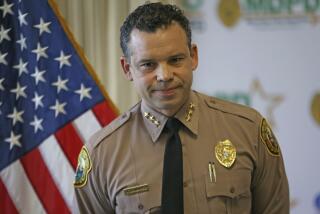EC Nations Set 1990 Deadline to Start Process of Monetary Unity
- Share via
MADRID — In a major step toward European unity, the 12-nation European Community on Tuesday set a deadline of July, 1990, to formally begin the process of monetary union.
Leaders of the EC countries decided that the crucial first step in what is expected to be a lengthy journey toward a single currency will start July 1, 1990, with the lifting of all controls on the transfer of currencies between member nations.
They also committed themselves to an intergovernmental conference to chart subsequent steps in the process.
“Movement has been started,” Jacques Delors, president of the European Commission, said at a news conference at the end of a two-day summit meeting here. “It is irreversible and will lead to economic and monetary union.”
Rapid Pace Toward Union
European monetary union, still many years away, would carry major implications well beyond Europe. A common European currency, representing the world’s largest trading bloc with an annual trading volume that exceeds that of the United States and is more than twice that of Japan, could quickly become a primary competitor to the dollar on global markets. Such a move would do away with currencies such as the pound sterling, the franc and the drachma.
The agreement to move forward on an idea that only a few years ago was widely viewed as a utopian dream reflects the unexpectedly rapid pace with which the community is moving toward unity.
The political momentum generated by this pace was seen as instrumental in forcing British Prime Minister Margaret Thatcher into concessions that made Tuesday’s accord possible.
“I didn’t expect a consensus a week ago,” said Spanish Prime Minister Felipe Gonzalez, who was chairman of the meeting. “Thank God for Mrs. Thatcher.”
At a news conference after the meeting, Thatcher left little doubt that she is still deeply opposed to both the idea of monetary union and the process leading to it, but she agreed to the final document committing Britain to both.
Many observers linked her retreat in part to the drubbing her Conservative Party was given last week in elections for Britain’s representatives to the European Parliament. The party’s campaign and her own stridently anti-EC rhetoric in the weeks before the election were rejected by British voters, who handed the Conservatives their worst defeat in a national election in this century.
Thatcher had scoffed at the EC report outlining a path toward monetary union when it was published last spring. She said she would have nothing to do with it. But in the course of the meeting here she detailed for the first time conditions under which she would link the British pound to an exchange rate mechanism that already binds nine EC currencies in rough parity.
Joining this mechanism is an important prerequisite for any monetary union. Of the EC currencies, the pound is the only major unit not in the mechanism, which forms the heart of the decade-old European Monetary System.
Although Thatcher refused to discuss timing, the tone of her comments reflected a willingness to cooperate that had previously been absent. She also agreed to participate in the intergovernmental conference that is to discuss further moves toward monetary union once the first stage has begun.
Asked if she would consider boycotting such a conference, she answered: “It is never right to leave an empty chair. That leaves us with no influence at all. It is a bad policy.”
Thatcher’s instinctive distaste for big government and her brand of homespun popular capitalism have long made her a reluctant participant in the move to cede power to a central European bureaucracy, an inherent part of European unity. The idea of handing over such a crucial element of power as national monetary policy has come especially hard.
“It would be the biggest transfer of sovereignty we’ve ever had,” she said Tuesday.
In what was widely interpreted as a delaying tactic, Thatcher managed to prevent complete acceptance of last spring’s report on monetary union, compiled under the direction of Delors and with the participation of the heads of all 12 EC central banks.
The report envisions a single currency administered by a system of federated central banks similar to the U.S. Federal Reserve System.
According to the final communique, the intergovernmental conference could also consider alternative proposals.
“We’ve accepted the Delors report as a good basis for this further work, but not the only basis,” Thatcher said. “It will be possible to bring in other ideas and approaches.”
Delors, who at times has found it difficult to conceal the personal enmity between himself and Thatcher, said his report is the only way forward.
“I await her alternative proposals with interest,” he said. “It is not easy to find the common ground between 12 central bankers. . . . (They) included everyone from neo-Keynesians to the ayatollah of monetarism.” It was not clear to whom Delors was referring.
Delors reacted caustically to Thatcher’s assertion at her news conference that by agreeing to Tuesday’s communique she had merely agreed to a first step on the path toward monetary union. He said, “I understand a political strip-tease contains a number of stages.”
An attempt by French President Francois Mitterrand to commit the community to start the intergovernmental conference by the end of 1992 failed to win support, but the sense that the community had achieved a breakthrough was clearly evident.
“What has happened today is an important step that brings European unity closer,” Chancellor Helmut Kohl of West Germany said.
More to Read
Sign up for Essential California
The most important California stories and recommendations in your inbox every morning.
You may occasionally receive promotional content from the Los Angeles Times.












